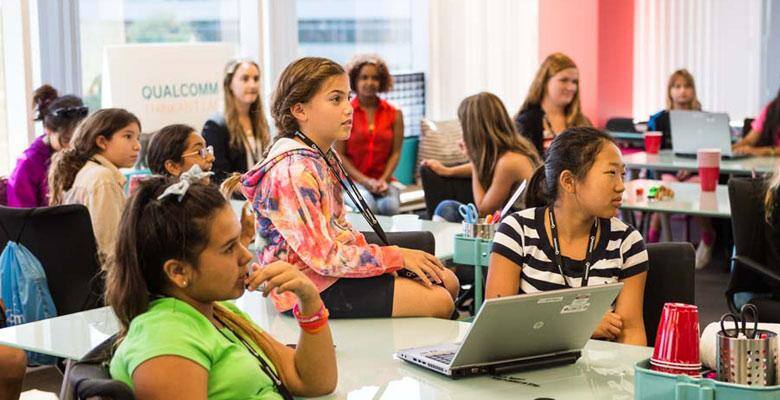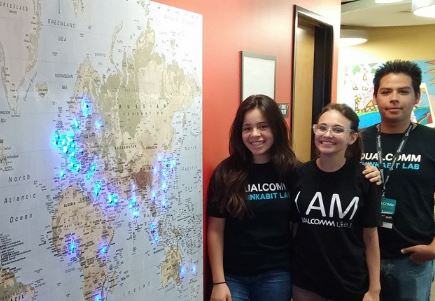Narrowing the Digital Education Gap and Expanding the STEM Pipeline

This ongoing blog series features articles written by a few of the speakers we’re looking forward to seeing at the 2016 Net Impact Conference. Erin is Lead for Qualcomm’s Thinkabit Lab & Women Enhancing Technology Programs. She will be speaking at the "EdTech: More than Just Hype?" session on November 4th.
Next month, I’ll be participating in “EdTech: More than Just Hype?”, a 2016 Net Impact Conference session that examines whether the new technologies that can improve education are accessible to all students or if they are widening the learning gap. Education is an important aspect of Qualcomm’s sustainability strategy, both as it relates to our efforts to expand the science, technology, engineering and math (STEM) pipeline and the education programs within our Qualcomm® Wireless Reach™ initiative.
Expanding Wireless Reach through Public-Private Partnerships
I’ve spent much of the last decade leading Wireless Reach programs in Southeast Asia, many of which were EdTech related and focused on overcoming access barriers by bringing mobile devices, connectivity, educational content, and online resources to students and teachers at underserved schools.
Developed and implemented through public-private collaborations, these programs leveraged ubiquitous mobile technologies. And, while some programs used digital tools with more features and greater capabilities than in other programs, all helped prepare students for careers in the 21st century, serving as models for economic and social development.
For example, the first education program I led established computer labs and Internet connectivity in six schools in Indonesia and helped integrate the use of computers into the curriculum, providing more than 1,000 students with tools for education, research and valuable job skills training. Our team also created the Computer System Sustainability Toolkit, which we provided to the participating schools, empowering them to achieve financial and technical sustainability of their labs.
Encouraging STEM Education

Part engineering lab and part classroom, our Thinkabit Lab has been so successful in exposing middle school students to STEM-related subjects in a fun way that we’ve been collaborating with local schools and libraries to expand the Thinkabit model to their campuses. Our collaboration with Virginia Tech has resulted in the opening of the Virginia Tech Thinkabit Lab in the National Capitol Region, the first Thinkabit Lab outside California.

Qualcomm & the SDGs
Goal 4 of the United Nations Sustainable Development Goals focuses on ensuring inclusive and quality education for all and promoting lifelong learning. Through our strategic sustainability programs, Qualcomm is contributing to efforts to achieve this very important goal.
I look forward to seeing you in Philadelphia next month!
Want to hear more from Erin? Register now for the 2016 Net Impact Conference.
Erin Gavin serves as a Senior Manager of Government Affairs for Qualcomm Incorporated. In this role, she is responsible for initiatives that focus on building a diverse and innovative pipeline of talent in fields related to science, technology, engineering and math (STEM). One of her key programs is the Qualcomm® Thinkabit Lab™, which is the combination of a lab, makerspace, and classroom for 6-8th grade students from all cultural and socioeconomic backgrounds. Erin also leads Qualcomm’s international and U.S.-based Women Enhancing Technology (WeTech) program with the Institute of International Education.




